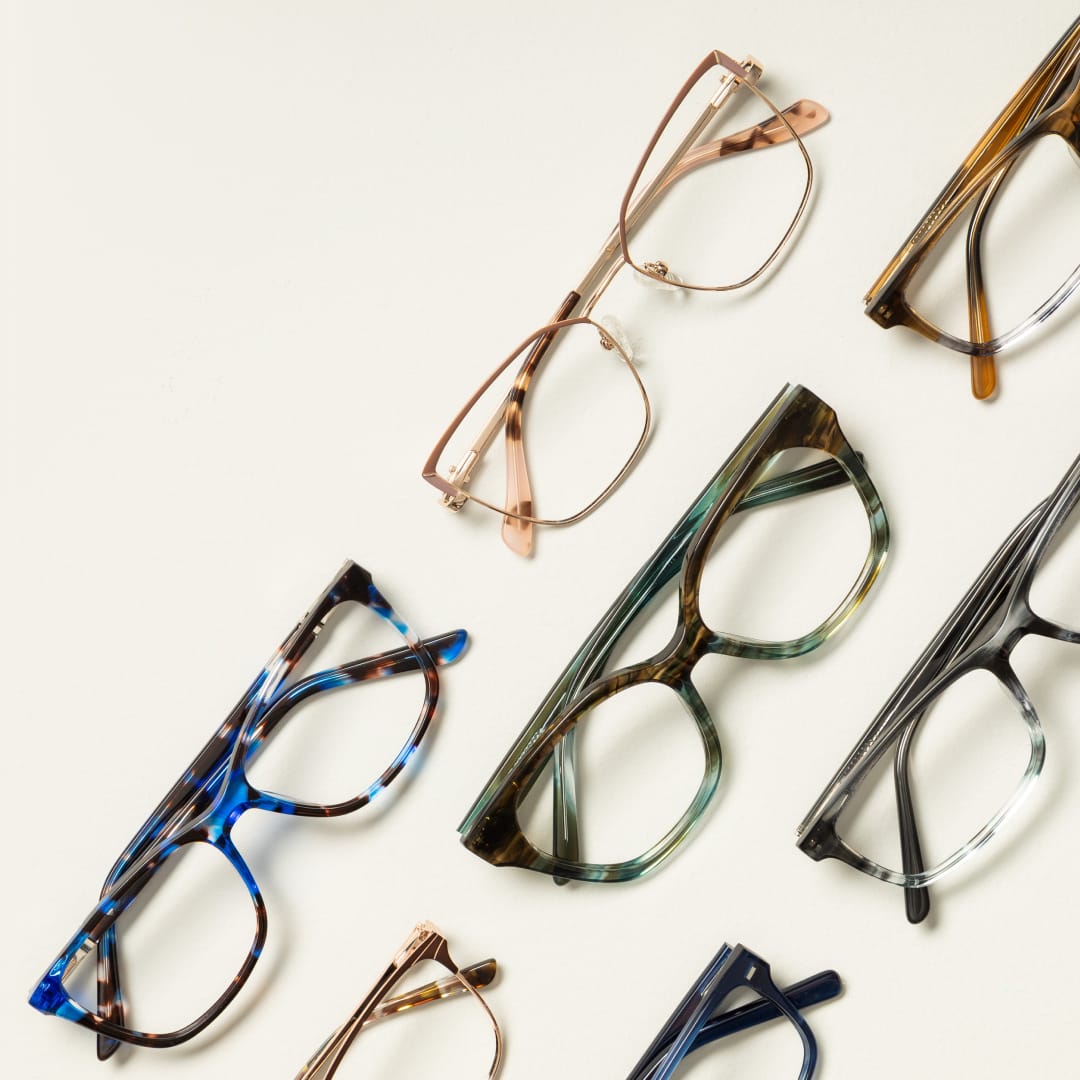Why do my eyes feel tired when wearing glasses?
Clark Kent and librarians may have made wearing glasses look easy, but it's not always as glamorous as everything thinks it is. Glasses wearers fight many battles, from fogged-up glasses to scratched lenses. But perhaps the most difficult one of all is eye fatigue. If you've ever wondered, "Why do my eyes feel tired when wearing glasses?" you, my friend, have been through eye fatigue.
Luckily, there are solutions, so you don't have to give up that mysterious and super cool look your glasses give you.
Why do my eyes feel tired when wearing glasses?
So, why do your eyes feel tired when wearing glasses? There are a few possible explanations.
Understanding eye fatigue with glasses
Eye fatigue is the most common reason someone feels tired when wearing glasses. Two possible reasons cause eye fatigue.
Adjustment period
Can new glasses make you tired? Yes, they can. Your eyes have muscles that initially put in extra work as they adjust to a new prescription. As a result, a person wearing new glasses might feel muscle strain in their eyes and even experience headaches. This will be especially true for those who had a dramatic change in their prescription. Just think of it as your eyes went from barely working out to following a bodybuilder's workout routine. It's an intense change.
Most people take 2 to 3 days to adjust, but in some cases, it can take up to 2 weeks.
Role of prescription lenses
If you're still struggling with tired eyes after several weeks of wearing a new prescription, it could be a sign that your prescription lenses are too strong or too weak. They're not allowing you to see properly, straining your eyes and making you feel tired. Immediately contact your doctor and get your prescription re-evaluated. Someone, somewhere, got your prescription messed up, and your poor eyes simply can't take it anymore!

The Framery at 1-800 Contacts
Get premium frames starting at $79
Shop glasses
Other contributing factors
Although rare, other factors can contribute to eye fatigue, including:
-
Frame fit and weight. Poorly fitting frames or heavy glasses can cause additional eye strain.
-
Lens coating. If you sit in front of a computer screen all day, you may need special glasses with an anti-reflective coating to help reduce the glare from digital screens. And let’s be honest, which of us doesn’t spend a shameful amount of time looking at screens?
Solutions for tired eyes from glasses
There are solutions for glasses for tired eyes, and you can start to feel some relief with these tips.
Choosing the right glasses
Imagine going for a run in the wrong pair of shoes. You're more likely to injure yourself, be sore, and have the wrong muscles working. Well, the same is true for glasses. Choosing the right glasses matters.
Choose lightweight frames that don't feel heavy on your face. Also, consider which lens type is most suitable for you, such as digital or polarized.
Lastly, consider asking for a professional adjustment of your glasses. You didn't go to school for glasses; how are you supposed to know how they should fit? Let the professionals ensure they’re adjusted for comfort and reduced fatigue.
Managing eye fatigue
If you're experiencing eye fatigue, know there are things you can do to help yourself adjust quickly.
-
Eye exercises: This may sound silly, but you need to exercise your eyes. This will help them feel focused and alert and reduce fatigue. Try to take breaks where you focus on prolonged blinking, eye-rolling, and near and far focusing. (Maybe do this in the privacy of your home so you don't get any strange looks in the office!)
-
Visual hygiene: Keep your glasses clean so your eyes aren't straining to see through dirt and scratches.
-
Gradual wear time: Try a slow ramp-up when wearing your glasses. Start a few hours on the first day and increase by an hour or so every day after.
-
Comprehensive eye exam: Book a thorough examination to help ensure your prescription is correct.
-
Prescription review and adjustment: It's essential to review and adjust your prescription at least every 2 years. Vision can deteriorate with age, and you must adjust your glasses to fit your needs.
Eye fatigue should be temporary
Remember, eye fatigue is normal when getting a new pair of glasses. It's likely happening because your eyes are getting used to the new prescription. If at-home solutions don't help, schedule an eye exam to get some answers.
Ultimately, you're here because your eyes are tired, and it doesn't feel great. We can't tell you what to do, but we strongly suggest getting a free online eye exam to see if your prescription is the problem. It's free, so why not?
FAQs
How long does it usually take to adjust to a new pair of glasses?
Adjusting to new glasses can take 2 days to 2 weeks.
What are the signs my glasses prescription is wrong?
Some of the signs your glasses prescription is wrong are:
-
Eye fatigue
-
Dizziness
-
Headaches
-
Lack of focus
-
Blurred vision
-
Excessive eye strain
Are there specific types of glasses recommended for reducing eye strain?
Digital lenses can help reduce the glare from screens, which is beneficial for those who work in front of computers.





